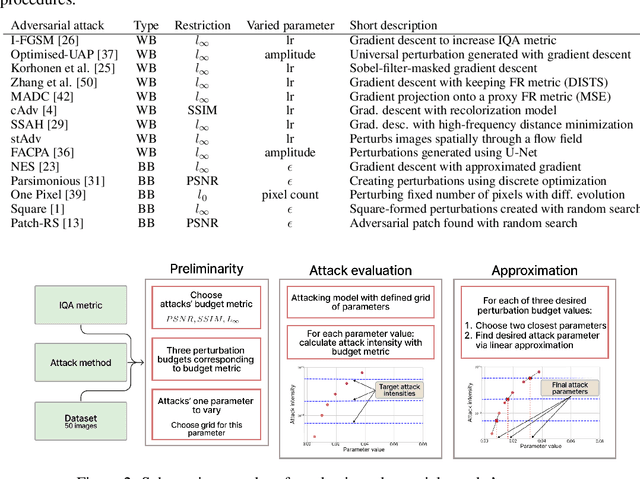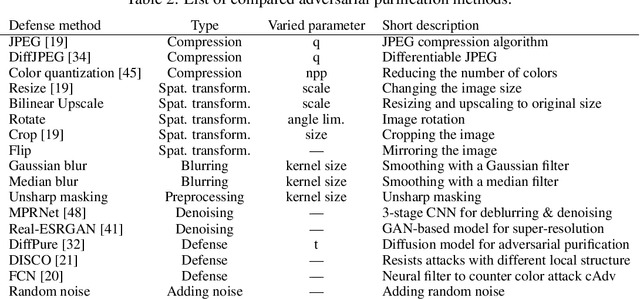Alexander Gushchin
NIC-RobustBench: A Comprehensive Open-Source Toolkit for Neural Image Compression and Robustness Analysis
Jun 23, 2025Abstract:Adversarial robustness of neural networks is an increasingly important area of research, combining studies on computer vision models, large language models (LLMs), and others. With the release of JPEG AI -- the first standard for end-to-end neural image compression (NIC) methods -- the question of evaluating NIC robustness has become critically significant. However, previous research has been limited to a narrow range of codecs and attacks. To address this, we present \textbf{NIC-RobustBench}, the first open-source framework to evaluate NIC robustness and adversarial defenses' efficiency, in addition to comparing Rate-Distortion (RD) performance. The framework includes the largest number of codecs among all known NIC libraries and is easily scalable. The paper demonstrates a comprehensive overview of the NIC-RobustBench framework and employs it to analyze NIC robustness. Our code is available online at https://github.com/msu-video-group/NIC-RobustBench.
Guardians of Image Quality: Benchmarking Defenses Against Adversarial Attacks on Image Quality Metrics
Aug 02, 2024



Abstract:In the field of Image Quality Assessment (IQA), the adversarial robustness of the metrics poses a critical concern. This paper presents a comprehensive benchmarking study of various defense mechanisms in response to the rise in adversarial attacks on IQA. We systematically evaluate 25 defense strategies, including adversarial purification, adversarial training, and certified robustness methods. We applied 14 adversarial attack algorithms of various types in both non-adaptive and adaptive settings and tested these defenses against them. We analyze the differences between defenses and their applicability to IQA tasks, considering that they should preserve IQA scores and image quality. The proposed benchmark aims to guide future developments and accepts submissions of new methods, with the latest results available online: https://videoprocessing.ai/benchmarks/iqa-defenses.html.
Video compression dataset and benchmark of learning-based video-quality metrics
Nov 22, 2022Abstract:Video-quality measurement is a critical task in video processing. Nowadays, many implementations of new encoding standards - such as AV1, VVC, and LCEVC - use deep-learning-based decoding algorithms with perceptual metrics that serve as optimization objectives. But investigations of the performance of modern video- and image-quality metrics commonly employ videos compressed using older standards, such as AVC. In this paper, we present a new benchmark for video-quality metrics that evaluates video compression. It is based on a new dataset consisting of about 2,500 streams encoded using different standards, including AVC, HEVC, AV1, VP9, and VVC. Subjective scores were collected using crowdsourced pairwise comparisons. The list of evaluated metrics includes recent ones based on machine learning and neural networks. The results demonstrate that new no-reference metrics exhibit a high correlation with subjective quality and approach the capability of top full-reference metrics.
Shot boundary detection method based on a new extensive dataset and mixed features
Sep 02, 2021



Abstract:Shot boundary detection in video is one of the key stages of video data processing. A new method for shot boundary detection based on several video features, such as color histograms and object boundaries, has been proposed. The developed algorithm was tested on the open BBC Planet Earth [1] and RAI [2] datasets, and the MSU CC datasets, based on videos used in the video codec comparison conducted at MSU, as well as videos from the IBM set, were also plotted. The total dataset for algorithm development and testing exceeded the known TRECVID datasets. Based on the test results, the proposed algorithm for scene change detection outperformed its counterparts with a final F-score of 0.9794.
 Add to Chrome
Add to Chrome Add to Firefox
Add to Firefox Add to Edge
Add to Edge